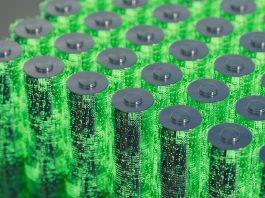A collaborative research team, including Pohang University of Science and Technology (POSTECH), has utilised AI to make successfully predicting lithium-ion battery capacity possible.
Range anxiety is growing as EVs gain in popularity
In the past decade, electric vehicles (EVs) have gained significant popularity, from passenger cars, and buses, to taxis – EVs have the benefit of being eco-friendly and having low maintenance costs. However, a common concern experienced by EV owners is a phenomenon known as, ‘range anxiety,’ which is wariness experienced regarding the possibility of fatal accidents if the battery were to suddenly deplete or reach the end of its life. Therefore, accurately predicting lithium-ion battery capacity is vital.
A POSTECH research team jointly led by Professor Seungchul Lee, and PhD candidate Sung Wook Kim from the Department of Mechanical Engineering, collaborated with Professor Ki-Yong Oh from Hanyang University. Scientists worked to develop a novel Artificial Intelligence (AI) technology that can correctly calculate the capability and lifespan of lithium-ion batteries.
This research is considered groundbreaking, as it has considerably improved the accuracy of predicting lithium-ion battery capacity by merging physical domain knowledge with AI.
This study was recently published in Applied Energy.
Predicting lithium-ion battery capacity
There are two techniques for predicting lithium-ion battery capacity: a physics-based model, which streamlines the intricate internal structure of batteries, and an AI model, which utilises the electrical and mechanical responses of batteries.
However, scientists have noted that the conventional AI model demanded large amounts of data for training, and when applied to untrained data, its prediction accuracy was very low. This highlighted the necessity for the emergence of a next-generation AI technology.
To successfully predict lithium-ion battery capacity with less training data, scientists combined a feature extraction strategy that varies from traditional methods with physical domain knowledge-based neural networks.
As a result, scientists discovered that the battery prediction accuracy for testing batteries with various capacities and lifespan distributions improved by up to 20% – its reliability was ensured by verifying the reliability of the results. The research team expects that these outcomes will lay the foundation for applying highly dependable physical domain knowledge-based AI to various industries.
“The limitations of data-based AI have been overcome using physics knowledge. The difficulty of building big data has also been alleviated thanks to the development of the differentiated feature extraction technique,” explained Professor Lee.
“Our research is significant in that it will contribute to propagating EVs to the public by enabling accurate predictions of the remaining lifespan of batteries in next-generational EVs,” concluded Professor Oh.
This study was supported by the Institute of Civil-Military Technology Cooperation and the National Research Foundation of Korea.









